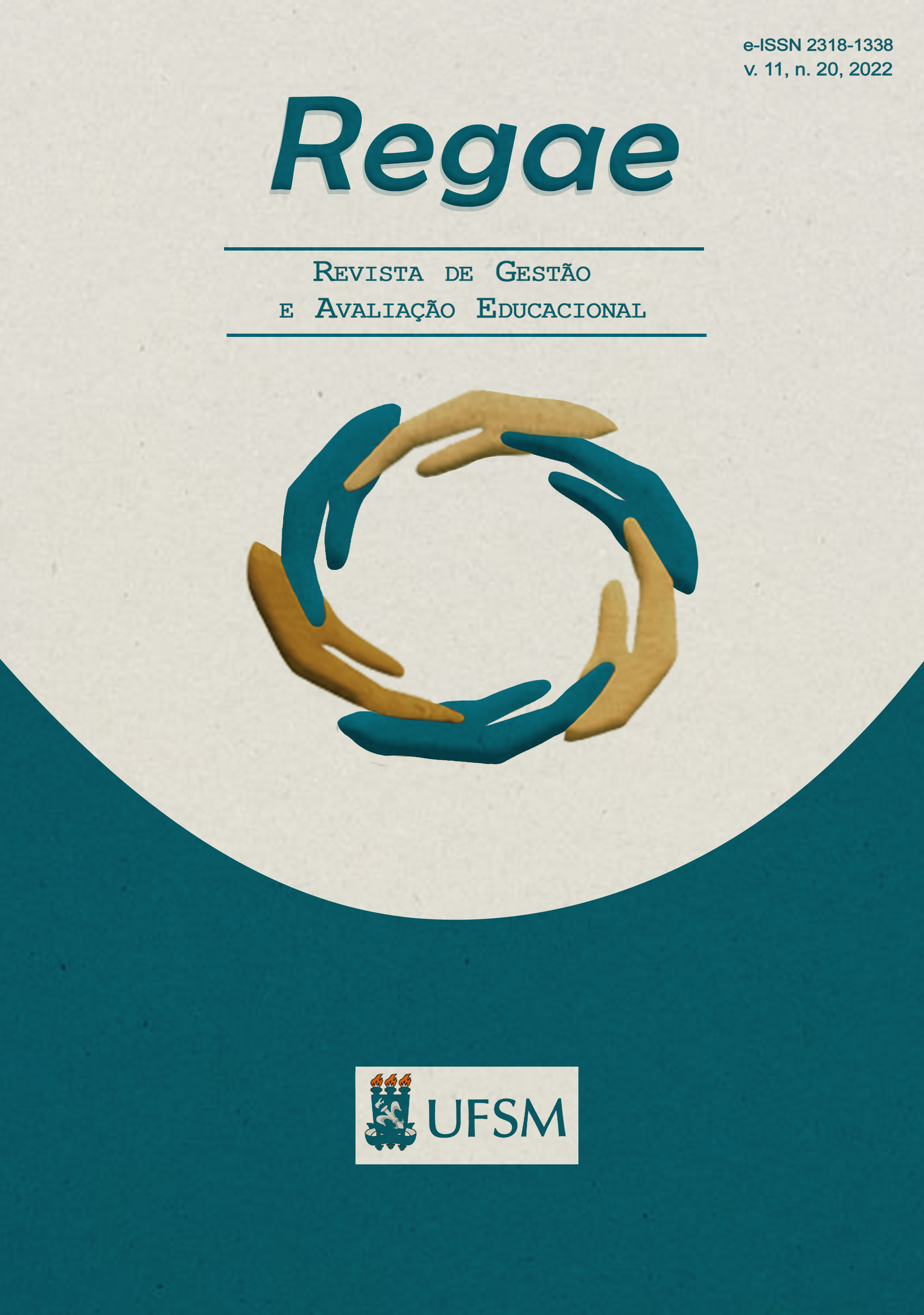Analysis of the scales on commitment and integration of 2018 freshman students of the University of the Republic in Uruguay
DOI:
https://doi.org/10.5902/2318133870685Keywords:
Higher education, student engagement, first income, UruguayAbstract
This article aims to validate a set of measures on educational experiences of engagement and integration among Udelar entrants, adapted in 2011 from the concepts implemented in the National Survey of Student Engagement - NSSE - by Kuh and collaborators. Presents a statistical analysis of the items related to three dimensions of integration: two related to learning and one to integration. The Survey on income generation experiences and decisions - Edegi - was applied to an intentional sample of students from the 2018 income generation at Udelar in three locations in the interior of the Republic - Maldonado, Rivera and Tacuarembó - and three faculties of the city of Montevideo - Psychology, Veterinary and Social Sciences.
Downloads
References
AERA/APA/NCME. Estándares para las pruebas educativas y psicológicas. Edición en español. Washington, DC: American Educational Research Association, 2018.
ÁLVAREZ, Lucía. Confiabilidad y validez de la escala consideración de las consecuencias futuras en español. Montevideo: Universidad de la República, 2018. Recuperado de https://www.colibri.udelar.edu.uy/jspui/bitstream/20.500.12008/20038/1/Alvarez%20Nu%C3%B1ez%2C%20Luc%C3%ADa.pdf. Acceso en 10 abr. 2021.
AROCENA, Rodrigo. Hacia la generalización y diversificación de la enseñanza terciara publica. Montevideo: Rectorado/Universidad de la República, 2007.
ASTIN, Alexander. What matters in college? Four critical years revisited. Los Angeles, CA: Jossey-Bass, 1993.
CARDOZO, Santiago. Trayectorias educativas en la educación media Pisa-L (2009-2014). Montevideo: Departamento de Sociología, Universidad de la República, 2015.
CARDOZO, Santiago; ANFITTI, Vanessa. Experiencias académicas y sociales en la educación superior en Uruguay: un estudio con base en la cohorte de estudiantes evaluados por Pisa en 2003. Montevideo: DS-Udelar, 2014.
CEDRÉZ, Maximiliana; DE LOS SANTOS, Verónica; GARCÍA, Maite; NICOTERA, Santiago; SOMMER, María Noel; ZEJERMAN, Ilana. ¿Preparados? ¿Listos? Ya! Factores que inciden en la elección de una carrera en educación superior. Montevideo: Universidad de la República, 2020.
CORTES, Fernando; RUBALCAVA, Rosa María; FERNÁNDEZ, Tabaré. Estadística social básica. Montevideo, Uruguay: Baferil, 2014.
DURKHEIM, Émile. (2000 [1912]). Las formas elementales de la vida religiosa. México, DF: Colofón, 2000.
FERNÁNDEZ, Tabaré; ALONSO, Cecilia; BOADO, Marcelo; CARDOZO, Santiago; MENESE, Pablo. Reporte técnico Pisa-L (2003-2012): metodología de la segunda encuesta de seguimiento a los jóvenes evaluados por Pisa en 2003. Montevideo: Universidad de la República, 2013.
FERNÁNDEZ, Tabaré; GONZÁLEZ, Mahira; SOMMER, María Noel; BUSCHIAZO, Valentina; CALIXTO, Paula. Largos caminos: la descentralización de la enseñanza de grado y la inclusión educativa en las sedes de Maldonado, Rivera y Tacuarembó de la Unviersidad de la República (2007-2018). Montevideo: Neiself/AGZ, 2020.
HU, Li-Tze; BENTLER, Peter. (1999). Cutoff criteria for fit indexes in covariance: structure analysis: Conventional criteria versus new alternatives. Structural Equation Modeling: A Multidisciplinary Journal, v. 6, n. 1, 1999, p. 1-55. Recuperado de http://expsylab.psych.uoa.gr/fileadmin/expsylab.psych.uoa.gr/uploads/papers/Hu_Bentler_1999.pdf. Acceso en 10 abr. 2021.
KUH, George. The national survey of student engagement: conceptual framework and overview of psychometric properties. Bloomington: Indiana University, 2002. recuperado de http://nsse.indiana.edu/pdf/psychometric_framework_2002.pdf. Acceso en 10 abr. 2021.
KUH, George; KINZIE, Jillian; SCHUH, John; WHITT, Elizabeth. Student success in college: creating the conditions that matters. San Francisco, CA: Jossey-Bass, 2005.
MARTÍNEZ, Rosario; HERNÁNDEZ, María Victoria; HERNÁNDEZ, María José. Psicometría. Madrid: Alianza, 2014.
MARTÍNEZ-ARIAS, Rosario. Psicometría: teoría de los test psicológicos y educativos. Madrid: Síntesis Psicológica, 1996.
PASCARELLA, Ernest. How college affects students. Ten directions for further research. Journal of College Student Development, v. 47, 2006, p. 508-520.
PASCARELLA, Ernest; TERENZINI, Patrick. How college affects students. San Francisco: John Willey Son, 2005.
RAUDENBUSH, Stephen; BRYK, Anthony. Hierachical linear models. CA: Sage, 2002.
SIERRA BRAVO, Restituto. Técnicas de investigación social: teoría y ejercicios. Madrid: Paraninfo, 1998.
TINTO, Vincent. Dropout from higher education: a theoretical synthesis of recent research. Review of Educational Research, v. 45, n. 1, 1975, p. 89-125. Recuperado de http://www.jstor.org/stable/1170024. Acceso en 10 abr. 2021.
TINTO, Vincent. (2013). Completing college: rethinking institutional action. Chicago, IL: The University of Chicago Press, 2013.
Downloads
Published
How to Cite
Issue
Section
License
Authors keep copyright and concede to the magazine the right of first publication, with the work simultaneously licensed under the Creative Commons Attribution 4.0 International, non-commercial license with no derivative work, which allows to share the work with no author recognition and initial publication in this magazine.
Authors has authorization to overtake additional contracts separately, to distribute a non-exclusive version of the work published in this magazine: For example: to publish in an institutional repository or as a chapter of a book, with authorial recognition and initial publication in this magazine.
Authors are allowed and are encouraged to publish and distribute their work online. For example: in institutional repositories or in their own personal page – at any point before or during the editorial process, because this can result in productive changes, as well as increase the impact and the mention to the published work.






